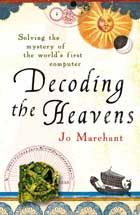An interesting thing happened at a conference I was attending last week. The were three speakers giving talks to all the attendants (c:a 300 people). First up was the minister of communication (unexciting but well formulated explaining new broadband policy), the was James Boyle discussing Cultural Agoraphobia (an excellent presentation on the public domain). Finally was a CEO who was supposed to be talking about mobility but spent the entire time promoting his own company and explaining why they were great.
In most such situations the crowd fidgets but endures. But not with a crowd that has access to twitter. The first tweets were bored comments about ill concealed marketing but this was soon followed by harsher comments. The tweets were ReTeeted and commented upon. There was an amazing difference between the online/offline reaction to the speech. Like an iceberg, the real action was under the surface.
Obviously he should not have been invited as a speaker. Nor should he have accepted to speak. And at least he should have respected those sitting listening to him enough not to turn his time into a blatant advertisement.
One of the questions tweeted at the time was why there wasn’t a screen where the speakers could see the reactions of the crowd. But is this a good idea? What are the social conventions of twittering in lectures? In non-tech situations we may allow our minds to wonder, occupy ourselves, maybe talk to our neighbors. Or in a gesture of our dissatisfaction walk out of the lecture hall.
Angry tweets to the world seem acceptable – But would nasty comments flowing along on a computer screen in front of the speaker be considered ill mannered?
Twitter has already been the subject of discussion in academic circles. In October (2009) Laura Bonetta Should You Be Tweeting?
In May of this year, Daniel MacArthur, a researcher at the Wellcome Trust Sanger Institute in Cambridge…reported live from the Cold Spring Harbor Laboratory (CSHL) meeting Biology of Genomes.
A participant from the online news site Genomeweb protested that MacArthur was twittering and blogging about the meeting. The basis of there protest was that while media had to obtain permission to be able to report from the meeting but MacArthur was attending the meeting as a participant and therefore was not required to obtain permission. As a result of this complaint the CSHL notified a change of its rules:
“any participant intending to blog, twitter or otherwise communicate or disseminate results or discussion presented at the meeting to anonymous third parties must obtain permission from the relevant presenting author before communicating any results or discussion to third party groups, message boards, blogs or other online resources (other than your own lab or departments).”
But this seems to be an extreme way to go…









